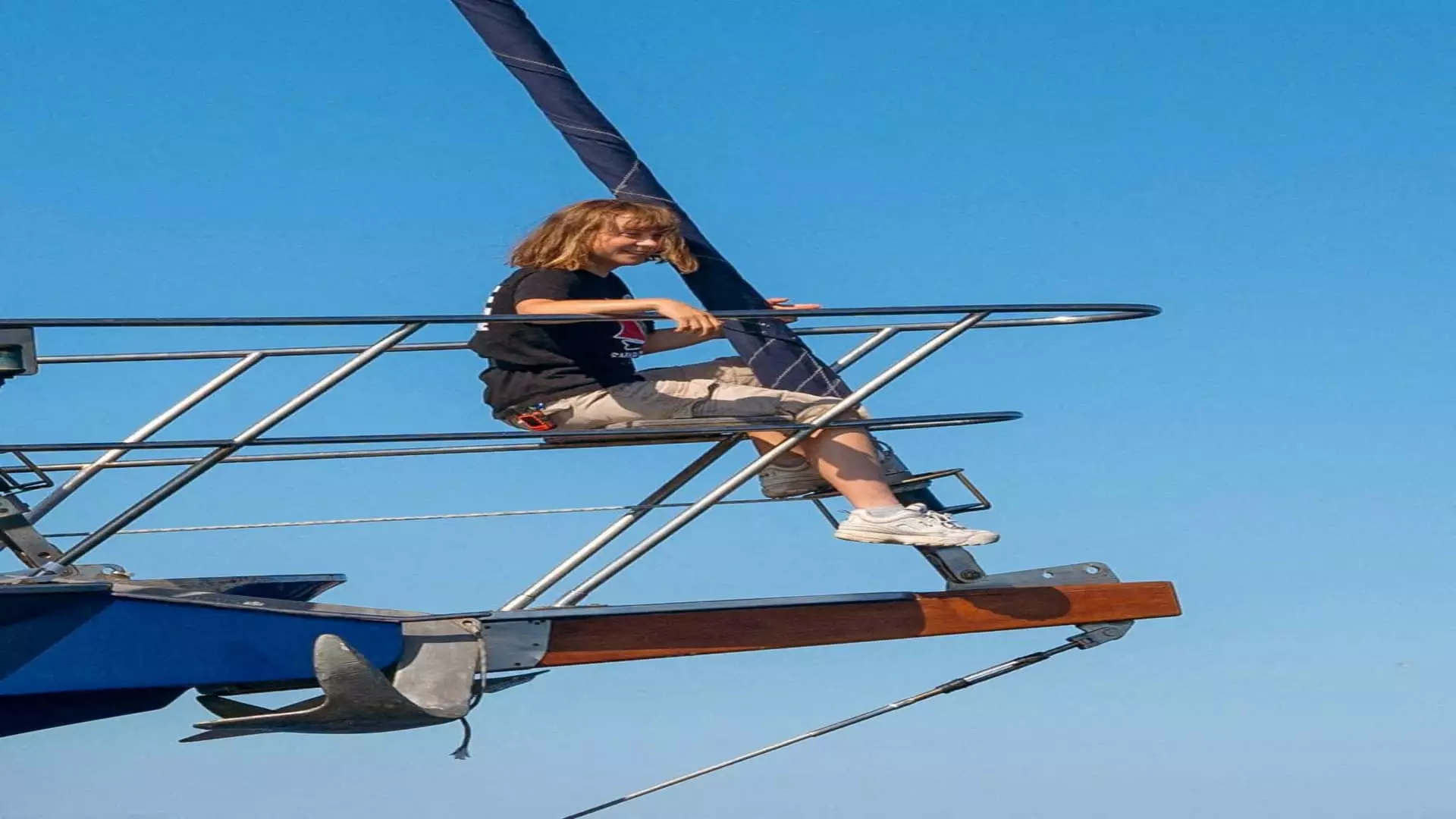In a world often characterized by apathy toward humanitarian crises, Greta Thunberg’s bold stance is a reminder that activism remains a formidable force. The recent attempt to breach the naval blockade of Gaza by a boat focusing on humanitarian aid and awareness presents a critical scenario in today’s geopolitical landscape. The friction between a government bent on maintaining its narrative and activists striving to provide aid for the suffering paints a vivid picture of the ethical dilemmas faced in the arena of international politics.
Thunberg and her fellow activists aboard the Madleen are not merely aiming to deliver supplies; they aim to spotlight a harrowing truth that remains buried beneath layers of political rhetoric. Their commitment to challenge a blockade that is viewed by many as collective punishment is commendable and essential. When the Israeli government’s Defense Minister, Israel Katz, brandishes accusations of antisemitism against eco-warriors like Thunberg while labeling her a “Hamas propagandist,” it does more than merely dismiss her activism; it diminishes the plight of millions who have long suffered the consequences of entrenched conflict.
Understanding the Context of Blockades
Blockades in conflict zones often elicit heated debates regarding their legality and morality. The Israeli blockade of Gaza, which has been in effect since Hamas seized control in 2007, is framed by the Israeli government as a defense mechanism. However, it is essential to dissect this rationale: does it truly serve to protect national security, or does it exacerbate the already dire humanitarian situation? Critics argue that such restrictions function as punitive measures against an entire population rather than targeted strategies against militants, leading to widespread food shortages, lack of medical supplies, and ultimately, a humanitarian catastrophe.
With reports of over 54,000 Palestinian casualties, primarily women and children, as detailed by the Gaza Health Ministry, it is evident that the broader implications of this blockade weigh heavily on the souls of those living in Gaza. The impact of the blockade transcends humanitarian concerns; it becomes a matter of human dignity and self-determination. As the boat journey unfolds, we must remain acutely aware that the stakes go beyond political lines—this is about lives affected by war, suffering under systematic dehumanization.
The Role of the International Community
The Gaza crisis raises uncomfortable questions for the international community, forcing it to reckon with its complicity through inaction. While the U.S. government’s recent pressure on Israel to permit some aid into Gaza signifies a glimmer of hope, it reveals a troubling dynamic wherein assistance is contingent upon political maneuvering, rather than being an absolute right for the beleaguered inhabitants of Gaza.
Aid should not be a bargaining chip. The continuous cycle of violence and retribution appears to undermine long-term peace initiatives. Consequently, the time for passive observation has long passed; it is imperative for nations worldwide to engage actively in promoting peace while also recognizing the humanitarian catastrophe unfolding within this confined region.
The Power of Collective Action
As activists like Thunberg set forth to challenge political obstructions, they embody a collective struggle representing voices often muted by the dominant narratives. The international response to their efforts is telling—engagement versus apathy. Activism, particularly in the face of governmental resistance, is a testament to the unfaltering human spirit. However, it should elicit more than just admiration; it should spur action.
When activist vessels like the Madleen attempt to breach the blockade, they not only attempt to deliver aid but also symbolize a larger movement against systemic injustices. Their mission ignites a broader discourse about our responsibilities as global citizens, compelling us to ask—what more can we do? The questions linger far beyond the immediate circumstances, demanding introspection regarding our complicity and encouraging active engagement.
In essence, the defiance demonstrated by the activists aboard the Madleen serves as both an indictment of the status quo and a clarion call for solidarity among those who believe in the protection of human rights. It urges a reconsideration of political allegiances based on kindness and empathy. As the clarion call of activists challenges historical injustices, we must not allow their courage to go unanswered or unrecognised in a world that often prefers silence amid suffering.


Leave a Reply